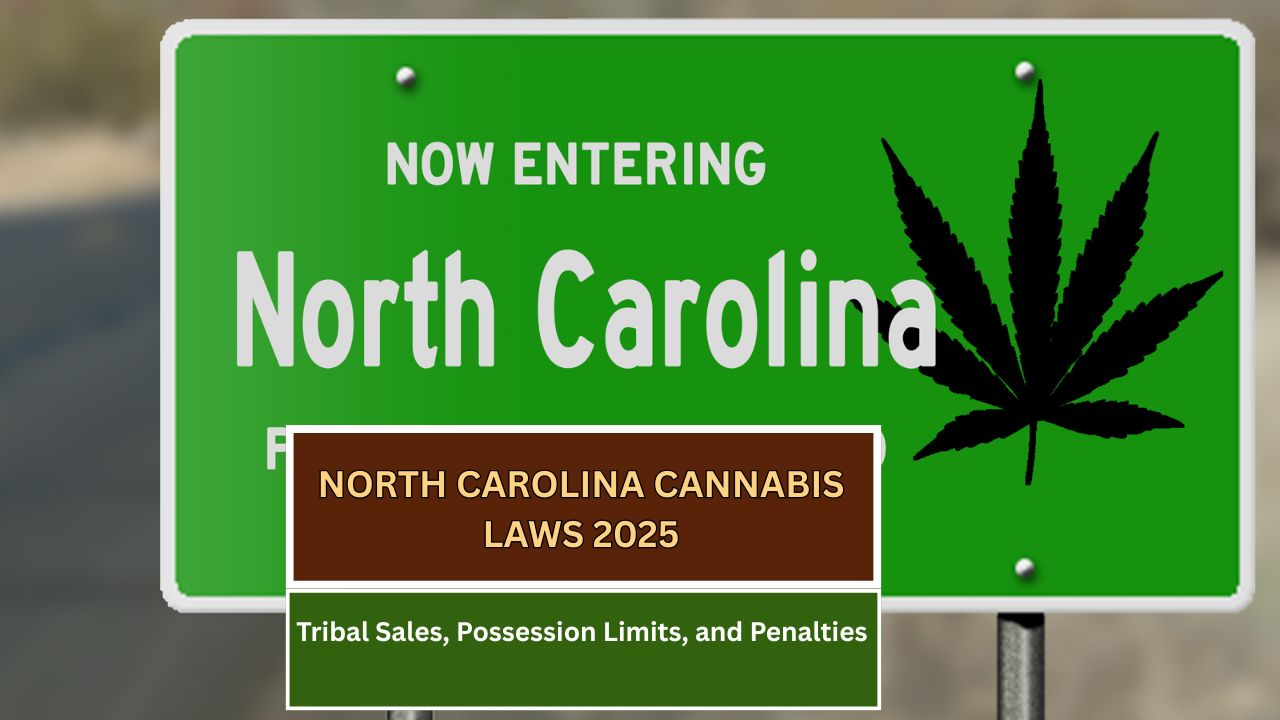As of May 2025, marijuana remains illegal for both recreational and medical use across most of North Carolina, despite growing momentum for reform across the United States. However, key exceptions and tribal sovereignty have made certain areas within the state legal zones for cannabis sales and consumption.
Recreational Use: Illegal but Decriminalized in Small Amounts
Recreational marijuana is illegal statewide in North Carolina. However, the state has decriminalized possession of small amounts of cannabis since 1977. Individuals found with less than 0.5 ounces face a Class 3 misdemeanor, typically resulting in a $200 fine with no jail time. Possession of amounts between 0.5 and 1.5 ounces is a Class 1 misdemeanor, while more than 1.5 ounces is a Class I felony, which may carry jail time.
Medical Marijuana: Legislative Stalemate Continues
Unlike neighboring states like Virginia, North Carolina has not passed any legislation to establish a full-fledged medical marijuana program. Several efforts in the state Senate — such as the “Compassionate Care Act” — have passed one chamber but consistently stalled in the state House of Representatives.
As a result, patients suffering from chronic pain, cancer, epilepsy, PTSD, and other conditions do not currently have legal access to medical cannabis through any state-licensed program.
A Unique Exception: Legal Sales on Cherokee Tribal Land
In a groundbreaking move, the Eastern Band of Cherokee Indians (EBCI) — a federally recognized tribe located within the Qualla Boundary in western North Carolina — legalized both medical and recreational marijuana for adults 21 and over.
In September 2023, tribal members voted to approve full adult-use cannabis sales. On September 7, 2024, the first legal marijuana dispensary opened under tribal law, operated by Qualla Enterprises.
This legalization applies only within the Qualla Boundary, which is sovereign land not subject to state law. Transporting cannabis off tribal land into state jurisdiction remains illegal and may result in arrest.
More details on tribal law can be found on the Eastern Band of Cherokee Indians’ website, and recent coverage of this historic vote is available via the Associated Press.
Hemp, CBD, and Delta-8 THC: A Legal but Changing Market
North Carolina allows the sale and use of hemp-derived products containing less than 0.3% THC, aligning with federal standards set by the 2018 Farm Bill. This includes CBD oils, tinctures, and topicals.
However, as synthetic and semi-synthetic cannabinoids like delta-8 THC and delta-10 THC have become increasingly popular, state lawmakers are moving toward stricter regulation. A 2025 proposal aims to ban or restrict these substances, citing concerns over unregulated psychoactive effects.
Public Sentiment and Federal Pressure
Polls indicate that a majority of North Carolina residents support the legalization of both medical and recreational marijuana, in line with national trends. Nevertheless, opposition in the legislature — particularly within the House — has blocked reform for years.
With increasing federal pressure to reclassify marijuana and growing regional legalization, North Carolina remains an outlier in the southeastern U.S., which may further fuel advocacy efforts in upcoming legislative sessions.
Summary of North Carolina Marijuana Laws (2025)
| Category | Status | Notes |
|---|---|---|
| Recreational Cannabis | Illegal statewide | Decriminalized under 0.5 oz |
| Medical Marijuana | Not legalized | No state program |
| Cannabis on Tribal Land | Legal on EBCI territory | Sales began Sept. 2024 |
| Hemp / CBD | Legal (under 0.3% THC) | Delta-8 restrictions pending |
| Possession Offenses | Fines or jail depending on amount | Class 3 misdemeanor for small amounts |
For those living in or visiting North Carolina, it’s important to understand where the state stands — and where its laws sharply diverge depending on jurisdiction. While the Qualla Boundary represents a step forward for tribal sovereignty and cannabis access, the rest of the state continues to lag behind national reform efforts.
Stay informed through the North Carolina Department of Justice and groups like the Marijuana Policy Project.
This article has been carefully fact-checked by our editorial team to ensure accuracy and eliminate any misleading information. We are committed to maintaining the highest standards of integrity in our content.

Outside of work, he enjoys playing chess, following cricket, and writing short stories. His commitment to integrity and in-depth analysis strengthens OTE News’ mission of providing trustworthy journalism.




